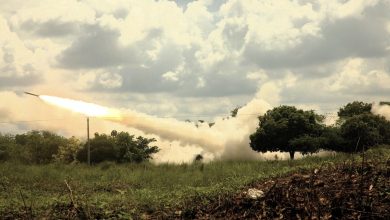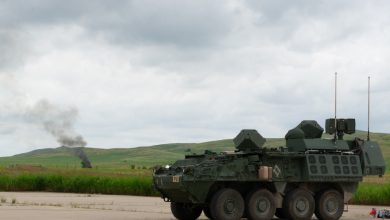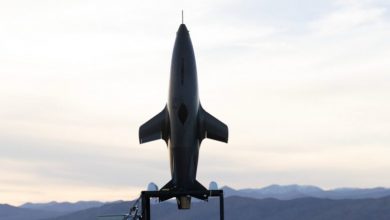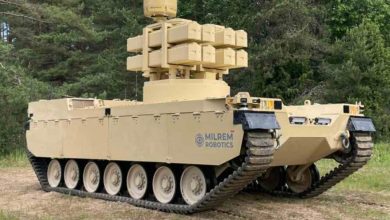Analysis: Doctrinal change of Turkish foreign, security, defense policies
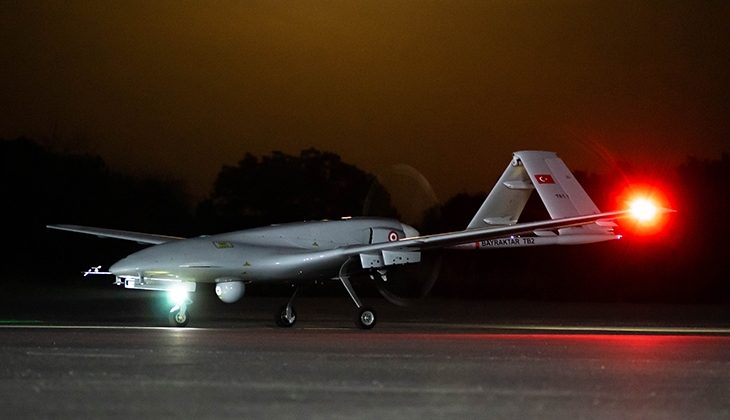
Fundamental reason for doctrinal change is that Ankara now wants to get rid of restrictions imposed by unilateral engagements.
Türkiye’s defense diplomacy has been drawing a significant amount of attention in recent years.
The fundamental reason for this is that Ankara now wants to get rid of restrictions imposed by unilateral engagements. They stemmed from the US in particular and NATO-based commitments in general. Since Türkiye’s security policies and strategies have been shaped under the defense umbrella of NATO for decades due to the advantages it offers, and sometimes out of necessity. However, the (in)security environment that Türkiye currently lives in is clear proof of the fact that Ankara needs to establish different and subjective policies and procedures against the ever-expanding range of threats and proliferating state/non-state armed actors in the millennium age. While the first break was the March 1 Resolution, this separation evolved into activism in which independent decisions and actions were signed after a while.
Doctrinal change in policies
This activism brought about a doctrinal change that marked Turkish foreign, security, and defense policies in the 2000s. The doctrinal change has found concrete manifestations in different ways, such as the country’s military bases, which have begun to spread over a wide geography, the Turkish Armed Forces’ cross-border military operations, and the targeted struggle for independence in the defense industry. In this context, especially in line with the objectives of locality, nationality, and strategic autonomy, Türkiye ensured the transfer of high-budget financial resources to defense.
The current political will has also implemented a stable incentive mechanism, considering the formation of a defense ecosystem in the country as essential for Türkiye’s self-defense and the export potential of the defense market.
As the role and importance of activism in Turkish foreign policy increased with this process, military technology began to serve this activism with an increasingly diverse product range. Thus, the high performance of unmanned aerial vehicles (UAVs), which contain tactical and strategical qualifications as well, as in real war environments led these platforms to evolve into important diplomacy instruments, which resulted in the widening of foreign policy practices. So much so that Türkiye’s UAV/SIHA (unarmed unmanned aerial vehicles) platforms, which perform multiple roles in Libya, Idlib, Karabakh, and Ukraine, have strengthened its hand by serving as a reference to Ankara’s defense diplomacy with the US and other NATO countries beyond Ukraine.
On the one hand, Türkiye’s defense activism reminds us of the critical role the country played for NATO’s eastern and southeastern wings on the eve of the Cold War; the fact that the weapons systems and platforms it has sold to dozens of countries in recent years have created strategic effects that have changed the course of the war has opened a new page in Ankara’s defense diplomacy. Therefore, it is possible to say that the Turkish government’s defense diplomacy with Ukraine influences the defense diplomacy and even grain diplomacy it has with Russia. The simultaneous implementation of grain diplomacy by Turkish National Defense Minister Hulusi Akar in the defense diplomacy traffic should be seen as a complementary practice in this regard.
In summary, the Syrian civil war and all subsequent conflicts and combat areas in which Türkiye has been engaged demonstrate that it has put forward a new approach to defense diplomacy unique to it, provided that it takes into account its commitments to NATO. Meanwhile, it is obvious that defense diplomacy will bring new opportunities in different fields such as grain diplomacy and energy diplomacy in case Türkiye can successfully handle the “balance” between Russia and Ukraine.
Türkiye’s defense diplomacy
We can say that there are three main reasons why Türkiye is a strong part of defense diplomacy in the ongoing Russia-Ukraine war. The first and most important of these is the formation of cooperation and working pace between Ankara and Moscow on Syria, as never seen in the past, in the field of defense, at the level of ministries and military institutions, as well as intelligence. It should be noted that before the Syrian Civil War, institutional relations between Türkiye and Russia at the military level were decimated to a degree that cannot be compared to today. However, considering the issues in which both countries are militarily engaged, such as Libya and Nagorno-Karabakh, it seems that the classic defense diplomacy has deepened between the two countries, and this situation has made a positive contribution to the foreign policy field.
The second important issue at this point is the rise that Türkiye has achieved in the defense industry in recent years. The country, on one hand, has been producing national platforms of its armed forces tested in a real war environment that can be put into the inventory of the products. On the other hand, the platforms it has provided have entered the inventories of other armies and produced game-changing results on the fields. All these activate the industrial dimension of the country’s defense diplomacy. As a matter of fact, Ukraine and Russia are two interesting examples in this context.
The drone support provided by Türkiye to Ukraine before and during the ongoing war is one of the most important factors preventing Russia from achieving a quick victory in the first phase of the war. Later, it was the TB2 drones provided by Ankara and the ammunition used by them that prevented Russia from effectively ensuring space control.
It has been seen that this situation works similarly in Karabakh on the same template. Meanwhile, the S-400 air defense system issue, which is the most critical one in the field of defense between Ankara and Moscow, has provided the establishment of a new and additional connection between the two countries. Although this situation has caused Türkiye to decouple its relations with the US to a great extent and Türkiye to be removed from the F-35 fighter jet program, the country’s uncompromising attitude towards the S-400 has facilitated the implementation of a balancing policy in Ukraine. In other words, in the context of the defense industry, while the opportunity provided by Türkiye to Ukraine allows it to exert influence on Kyiv — the influence and the sensitive defense cooperation with Moscow have enabled Turkish President Recep Tayyip Erdogan to exert influence on Russian President Vladimir Putin and get results.
As a matter of fact, all these facilitated the grain corridor agreement signed on July 22 and Russia’s return to the agreement, which was broken on Oct. 31, thanks to Türkiye.
The third issue is related to the strategic reemergence of Türkiye’s geographical position in the ongoing Russian-Ukrainian war. Türkiye’s clear implementation of the Montreux Convention and the demonstration of its mediator role in the war from the very beginning, and the fact that Russian and Ukrainian military officials meet from time to time through Türkiye have made defense diplomacy even more important.
In other words, not only diplomats met in the Turkish metropolis of Istanbul but also military officials often met due to the war situation. In particular, the fact that the Turkish northwestern province of Istanbul hosted negotiations at the point of a prisoner exchange and issues related to the safety of the grain corridor at sea concern the military sphere has shown that defense diplomacy is a critical element.
Source: AA/Merve Berker


